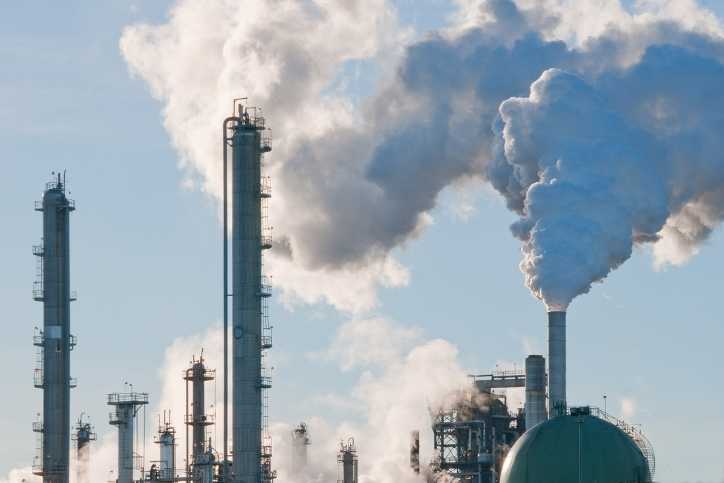
Oil refinery workers are at an increased risk for leukemia; if they develop the disease, they may be entitled to compensation. Leukemia is a type of cancer that starts in the blood-forming cells of the bone marrow. Over time, the leukemia cells crowd out the healthy blood cells, which can lead to serious health problems. A new study has shown the correlation between oil refinery workers and leukemia has increased. The study, conducted by the National Institute for Occupational Safety and Health, looked at data from over 2,000 refinery workers and found that those who worked in some regions of the refinery had an increased risk of leukemia than the general population.
While the findings of this study are concerning, it's important to note that the overall risk of developing leukemia is still relatively low. However, given the potential dangers of working in an oil refinery, workers must be aware of the risks and take steps to protect themselves from exposure to harmful chemicals.

Leukemia is a cancer of the blood cells. The cause of leukemia is not fully understood, but it is known to develop when the body produces too many abnormal blood cells. These abnormal cells crowd out healthy blood cells, making it difficult for the body to get the oxygen and nutrients it needs.
There are several possible causes of leukemia in Oil Refinery Workers. Still, one of the most likely causes is exposure to benzene and other chemicals used in the refining process. Oil refinery workers are exposed to a variety of chemicals daily, and this exposure can increase their risk of developing leukemia.
Benzene is a known human carcinogen, and exposure to benzene has been linked to an increased risk of leukemia. Studies have shown that workers in the oil refining industry exposed to benzene are at an increased risk of leukemia. There are several possible explanations for why benzene exposure may lead to an increased risk of leukemia.
Avoiding exposure to this dangerous chemical is the best way to prevent leukemia. However, if you work in an oil refinery, it is essential to be aware of the signs and symptoms of leukemia so that you can seek treatment as soon as possible if you develop the disease.
As someone who works in the oil industry, it's essential to be aware of the risks associated with exposure to certain chemicals and substances. One of the most health serious risks oil refinery workers face is leukemia, cancer affecting the blood and bone marrow. Oil refinery workers can take several measures to reduce their risk of developing leukemia.
Wearing proper protective gear when working with or around dangerous chemicals is essential. This includes:
If you are exposed to a chemical, wash the exposed skin area and remove any contaminated clothing immediately. Lastly, seek medical attention if you believe you have been exposed to a harmful chemical. Additionally, workers should get regular medical checkups, which can help catch leukemia in its early stages. Early detection is key to successful treatment.
Oil refinery workers can significantly reduce their risk of leukemia by taking these measures.
Unfortunately, many workers are unaware of their rights and do not receive the compensation they deserve. If you have been diagnosed with leukemia, you may be entitled to:
An experienced attorney can help you understand your rights and options and pursue the compensation you deserve. File a claim today.
Oil refinery workers who develop leukemia may be entitled to compensation from their employer if they can prove that their leukemia was caused by exposure to chemicals used in the refinery. Workers who develop leukemia may be able to receive workers' compensation benefits, including coverage of medical expenses and lost wages. If you or a loved one has been diagnosed with leukemia, you should speak with an experienced workers' compensation attorney to learn more about your legal rights and option.
Claiming compensation for leukemia due to oil refinery work can be lengthy and complex. However, there are steps that workers can take to increase their chances of success.
Gathering as much evidence as possible to support your claim is essential. This includes:
Next, file a claim with an experienced lawyer. It's best not to file your workers' comp claim alone and instead have us help you with that. We will discuss everything with you and ensure you get the most out of your claim. This is in addition to the compensation we will file for in court wit the private companies.
Most lawyers work on a contingency basis for these lawsuits. A contingency fee basis means you are not charged unless you win a settlement in or out of court. This fee structure ensures your team works hard for your case and that you don't have even more out-of-pocket expenses during a stressful time. Other cases that offer contingency fee schedules are:
Yes, there are many settlements for refinery workers. Here is an example:
The Defendant had spent 15 years working as a millwright for the defendants at the Delaware City refinery. He was exposed to benzene and numerous benzene-containing products and substances during his employment. As a result of his exposure to benzene, he was diagnosed with leukemia. Before his death, the defendant recounted to his diagnosing physician that he “bathed in benzene” while working at the refinery. The jury attributed 83% of the fault to the defendants and 17% to the defendant.
Oil refinery workers are at an increased risk of leukemia due to their exposure to hazardous chemicals. Leukemia is a blood and bone marrow cancer that can be fatal if not treated properly. Symptoms of leukemia include fatigue, weight loss, and easy bruising or bleeding.
Although the link between oil refinery workers and leukemia is not yet definitive, the research suggests that there may be a connection. This is a crucial issue to consider, given the number of people who work in oil refineries and the potential health risks involved. More research is needed to confirm the link between oil refinery workers and leukemia. Still, in the meantime, workers in this industry need to be aware of the potential risks and take steps to protect themselves.